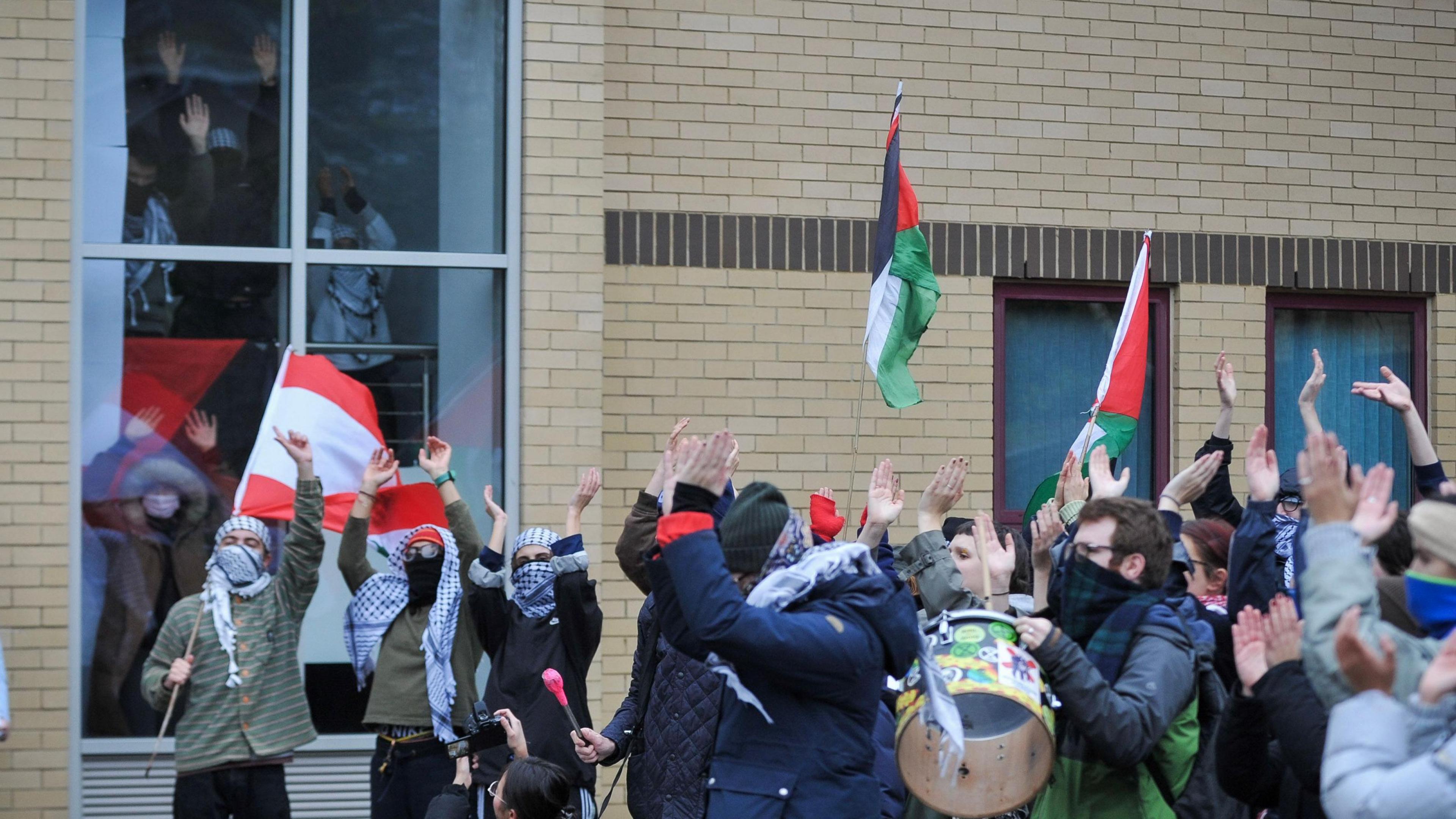Legal body worried by Cambridge protest injunction
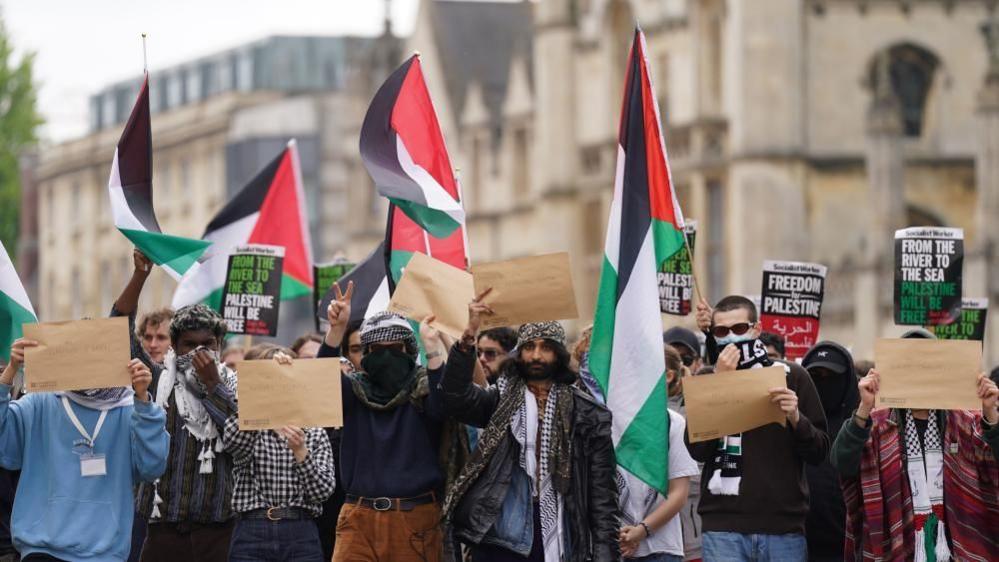
Protests have been staged in Cambridge over many months following the conflict in Gaza
- Published
A legal organisation that offers help to rights campaigners has criticised the University of Cambridge's attempts to prevent protesters causing disruptions.
Last week, a High Court judge granted an injunction, applied for by the university, aimed at preventing pro-Palestinian demonstrators from disrupting a graduation ceremony.
The European Legal Support Centre (ELSC), external has said the injunction the university sought was "broader" than comparable orders and would prohibit a "wide array of conduct".
The university has said any claim that it was trying to "restrict protest" was "ridiculous".
Mr Justice Fordham, external is expected to consider arguments about further injunctions at a future hearing.
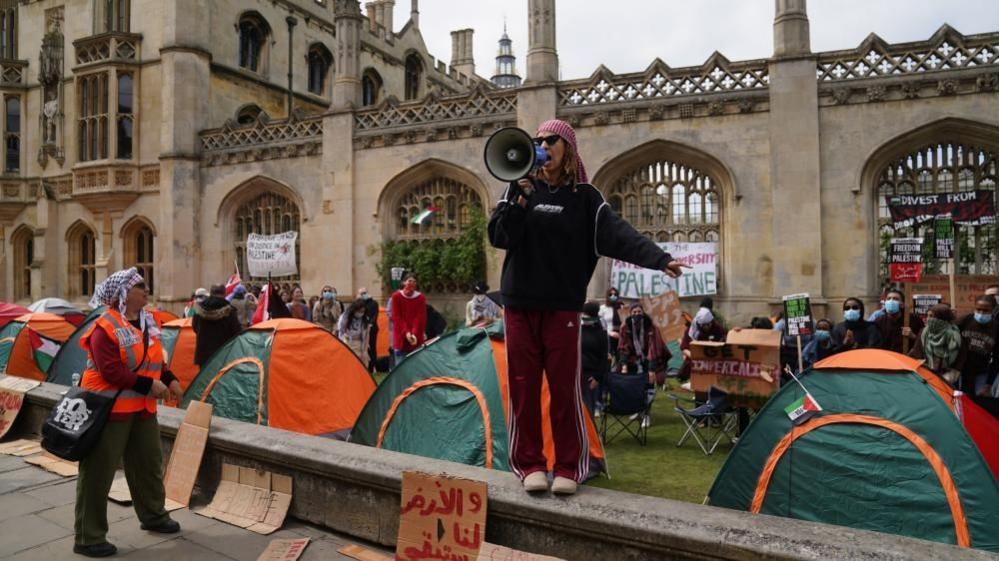
The University of Cambridge has dismissed any suggestion that it is trying to resist protest
Lawyers representing the university made the application in the wake of protests in Cambridge following the outbreak of the current conflict in Gaza between Israel and Hamas following the latter's killing of 1,200 people across the border in Israel and the taking of 250 Israeli hostages on 7 October 2023.
Pro-Palestinian campaigners alleged the university had not acted on previous agreements to review investments concerning the arms industry.
The university said in response that it was committed to reviewing its "approach to responsible investment".
ELSC appointed representation and wrote to Mr Justice Fordham to share its concerns about wider injunctions and he agreed it could "intervene" in the litigation.
Grant Kynaston, barrister for ELSC, said it had only become aware of the university's injunction two days before Thursday's High Court hearing in London.
'Implications'
In the ELSC's written argument, Mr Kynaston said the "scope" of the order the world-renowned university wanted was "broader than any comparable newcomer injunction in the university protest context".
"It would potentially affect all those who manifest any speech action or belief 'connected with the Palestine-Israel conflict', whether or not in the context of protest," he argued.
"It would cover highly symbolic properties in the heart of the University of Cambridge. It would prohibit a wide array of conduct, all of which is said to somehow ground a claim in trespass or nuisance."
He added that "severe human rights and equality implications" were involved in the issues raised in the litigation and the issue "required determination" after consideration of "full legal submissions and evidence".
Mr Kynaston said ELSC had "the legal and other resources" available to "assist the court".
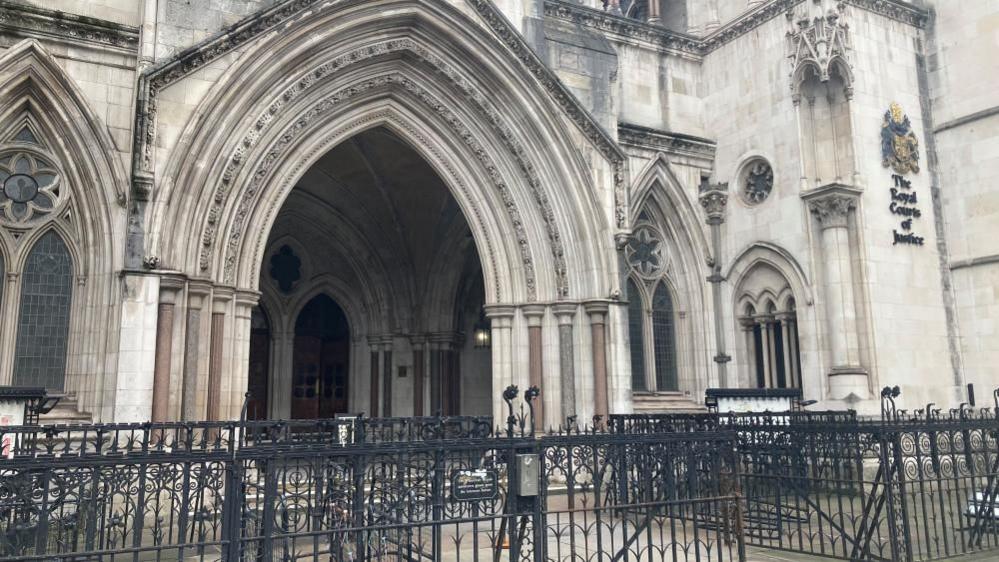
A High Court judge granted an injunction at a hearing in the Royal Courts of Justice in London on Thursday
Yasser Vanderman, the barrister who led the university's legal team, said some "defendants" formed part of a "well organised" group with "strong and committed" views on the conflict.
The university wanted "injunctive relief" to "restrain threatened acts of trespass and nuisance", he said.
Mr Vanderman asked for an injunction to last five years - with annual reviews - arguing that given the "long-standing nature" of the Gaza conflict, such a time-frame was reasonable.
A university spokesman said it was trying to protect students and staff.
Get in touch
Do you have a story suggestion for Cambridgeshire?
Follow Cambridgeshire news on BBC Sounds, Facebook, external, Instagram, external and X, external.
Related topics
- Published27 February
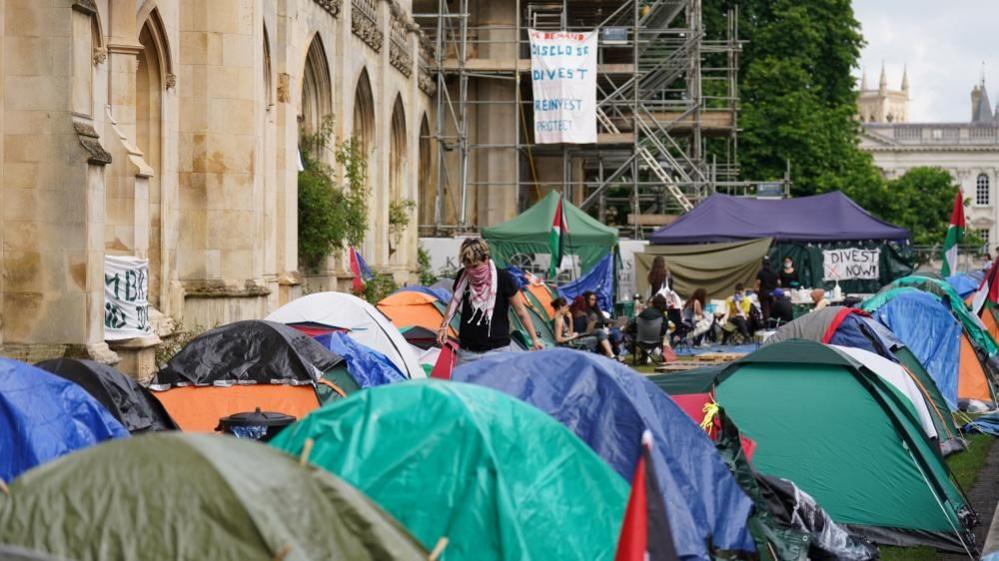
- Published27 November 2024
